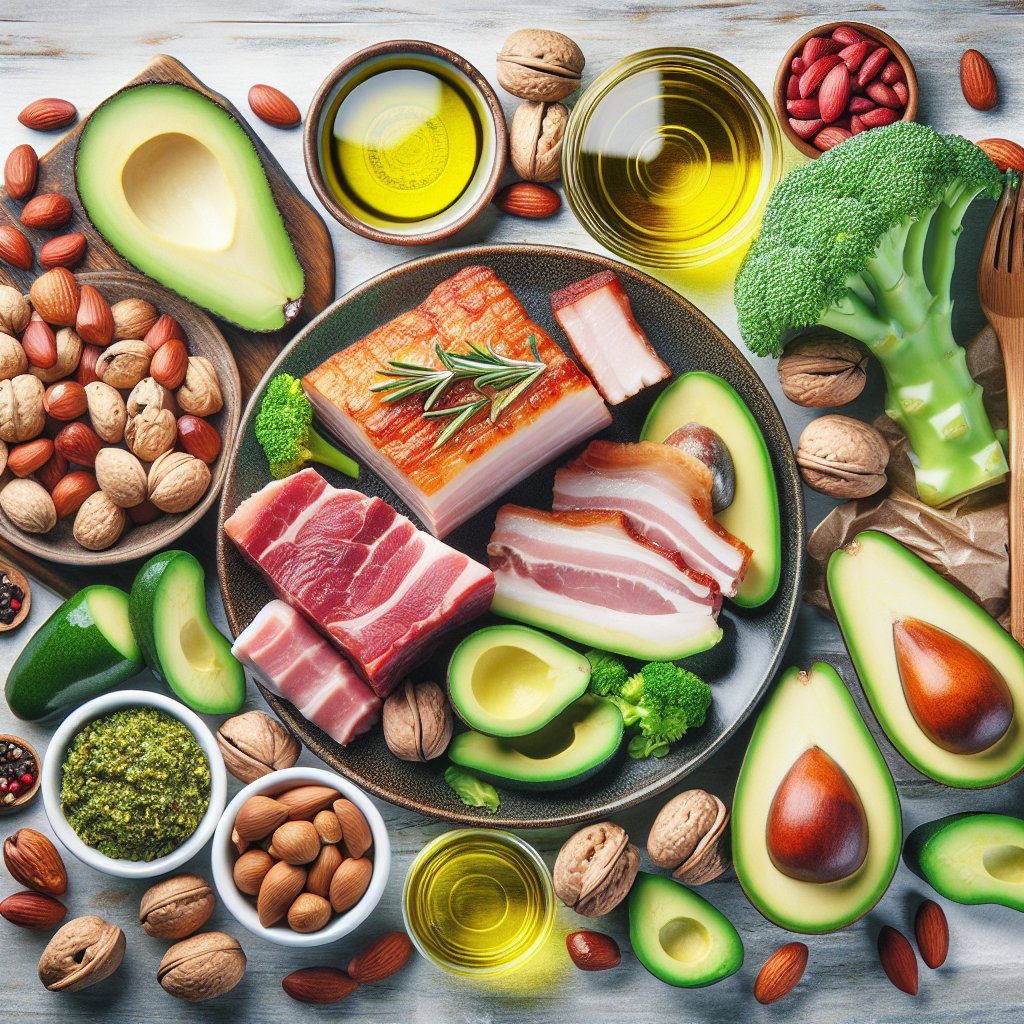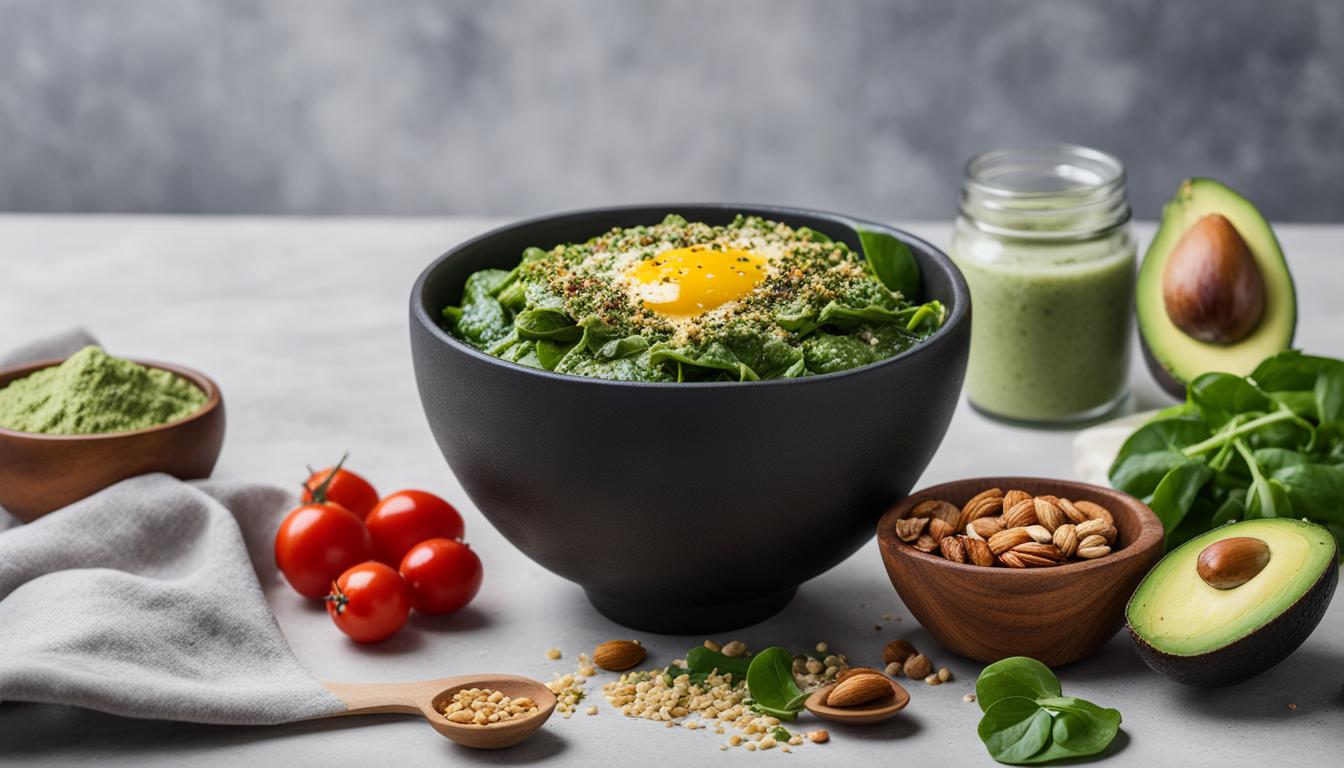Is Pork Belly Keto-Friendly? The Ultimate Guide to Incorporating this High-Fat Delicacy into Your Low-Carb Diet!
Understanding the Keto Diet: Is Pork Belly Keto-Friendly?
Hey there, fellow food enthusiasts! Today, we’re diving into the wonderful world of the ketogenic diet and exploring the tantalizing topic of pork belly. For those of you who may be new to the scene, the keto diet is a low-carb, high-fat eating plan that has taken the health and wellness world by storm. But what does it mean to be keto-friendly, and how does pork belly fit into this picture?
Well, let’s start with the basics. The keto diet is all about significantly reducing your carbohydrate intake and replacing it with healthy fats. By doing so, your body enters a state of ketosis, where it becomes incredibly efficient at burning fat for energy. This metabolic state can lead to myriad benefits, including weight loss, improved mental clarity, and enhanced physical performance.
Now, when it comes to the question of “is pork belly keto-friendly?” the answer is a resounding yes! The richness of pork belly makes it an excellent choice for those following a ketogenic lifestyle. Packed with healthy fats and moderate protein, pork belly fits perfectly into the high-fat, low-carb requirements of the keto diet.
So, whether you’re a keto veteran or just starting out on your low-carb journey, pork belly is a delicious and satisfying option that can be seamlessly incorporated into your meal plans. To uncover the wonders of pork belly and its place in your keto kitchen, read on as we delve deeper into this high-fat delicacy!

What is Pork Belly?
Pork belly is a flavorful and fatty cut of meat that comes from the underside of the pig. It’s known for its high-fat content and is often used in various cuisines around the world. When cooked properly, pork belly becomes tender and juicy, making it a favorite among food enthusiasts.
Nutritional Content
From a nutritional perspective, pork belly is rich in fats and protein. A 3-ounce serving of cooked pork belly provides approximately 29 grams of fat, 18 grams of protein, and negligible carbohydrates. The fat content in pork belly primarily consists of oleic acid, a heart-healthy monounsaturated fat also found in olive oil.
It’s important to note that while pork belly is high in fat, it’s also relatively high in calories, so portion control is essential when incorporating it into a ketogenic diet.
Common Uses in Cooking
Pork belly is incredibly versatile and can be used in various cooking methods, including roasting, braising, and grilling. In many Asian cuisines, it’s a popular ingredient in dishes such as braised pork belly, crispy pork belly, and pork belly bao buns. In Western cuisine, it’s often used to make bacon or as a flavorful addition to stews and soups.
When it comes to the ketogenic diet, pork belly is valued for its high-fat content, making it a satisfying and delicious option for those following a low-carb, high-fat lifestyle. Its versatility in cooking also makes it easy to incorporate into a wide range of keto-friendly recipes.
Nutritional Information of Pork Belly
When it comes to the ketogenic diet, understanding the macronutrient breakdown of foods is essential. Let’s delve into the nutritional information of pork belly to see if it’s keto-friendly. A 3-ounce serving of cooked pork belly provides approximately:
- Fat: 30 grams
- Protein: 18 grams
So, yes – pork belly is indeed keto-friendly! It’s a rich source of fat, making it an excellent choice for those following a low-carb, high-fat diet. While protein is also an important macronutrient, the high fat content in pork belly makes it a great option for meeting your fat intake goals while keeping your protein intake moderate.
Is Pork Belly Keto-Friendly?
Keto-Friendly Aspects of Pork Belly
Let’s talk about the star of the show – pork belly! If you’re following a keto diet, you’ll be delighted to know that pork belly is a fantastic addition to your meal plan. It’s high in fat and low in carbs, making it a perfect choice for keto enthusiasts.
According to the USDA National Nutrient Database, a 3-ounce serving of cooked pork belly provides approximately 29 grams of fat and less than 1 gram of carbohydrates. This high fat and low carb content make pork belly an excellent choice for those aiming to maintain ketosis.
Moreover, pork belly is rich in monounsaturated and saturated fats, including oleic acid, which is known for its potential health benefits, such as reducing the risk of heart disease.
When it comes to incorporating pork belly into your keto lifestyle, the versatility of this cut of meat is truly remarkable. From crispy, golden-brown slices to succulent slow-cooked dishes, the options are endless.
It’s important to note that while pork belly is indeed keto-friendly, portion control is key, especially for individuals who are also mindful of their calorie intake. This is simply because of its rich fat content. However, when enjoyed in moderation, pork belly can be a delectable and satisfying addition to your keto repertoire.
Benefits of Consuming Pork Belly on a Keto Diet
When it comes to the ketogenic diet, pork belly is a standout ingredient that offers a myriad of potential benefits.
First and foremost, pork belly is rich in healthy fats, making it an excellent choice for those following a low-carb, high-fat diet. It contains monounsaturated and saturated fats which have been shown to promote feelings of fullness and satisfaction, helping to curb cravings and promote weight loss. These fats are also essential for the body’s absorption of fat-soluble vitamins like A, D, E, and K, which are crucial for overall health.
Additionally, pork belly is a great source of high-quality protein, essential for muscle maintenance and overall bodily function. This protein content can help keep your energy levels stable throughout the day, preventing the energy dips often associated with high-carb meals.
Furthermore, pork belly is packed with essential nutrients such as B vitamins, particularly B1 (thiamine) and B12 (cobalamin), which play a vital role in energy production and neurological function.
Given its rich fat content and protein, pork belly can contribute to increased satiety and improved metabolic health, both of which are valuable assets to those on a ketogenic diet.
Embracing pork belly as part of your keto meal plan could provide you with a delightful and satisfying way to stay on track with your low-carb lifestyle.
Addressing Potential Drawbacks and Health Concerns
While pork belly is a delicious and popular choice for those following a keto diet, there are some potential drawbacks and health concerns to be mindful of when consuming this high-fat delicacy.
Sodium Content
One concern with pork belly is its high sodium content. A 100-gram serving of pork belly can contain around 1170 milligrams of sodium, which is nearly half of the daily recommended intake. Excessive sodium consumption can lead to increased blood pressure and pose risks to cardiovascular health.
Saturated Fat
Another consideration is the saturated fat content in pork belly. While healthy fats are encouraged on a keto diet, it’s important to consume them in moderation. Pork belly is rich in saturated fat, and overconsumption of this type of fat may contribute to elevated cholesterol levels and heart disease.
Potential Toxins
Additionally, pork belly may contain toxins or harmful substances, especially if sourced from conventionally raised pigs. To minimize the risk of exposure to toxins, it’s advisable to opt for pork belly from pastured or organic pigs, as these animals are less likely to have been exposed to antibiotics, hormones, or pesticides.
Despite these concerns, when consumed in moderation and as part of a well-rounded keto diet, pork belly can still be enjoyed without significant negative impact.
It’s essential to prioritize a varied diet and enjoy a wide range of keto-friendly foods to ensure balanced nutrition and minimize potential drawbacks associated with any single food item, including pork belly.
Practical Tips and Recipe Ideas for Incorporating Pork Belly into Keto-Friendly Dishes
So, you’ve decided to hop on the keto train and are looking for delicious ways to incorporate pork belly into your low-carb diet. Look no further, because I’ve got you covered with practical tips and mouthwatering recipe ideas to make the most of this high-fat delicacy!
Tip #1: Choose High-Quality, Pasture-Raised Pork Belly
When it comes to pork belly, quality matters. Opt for pasture-raised pork belly whenever possible. Not only is it more ethically sourced, but it also tends to have a higher nutrient profile with increased levels of omega-3 fatty acids and antioxidants. This means you’ll be getting the best possible nutritional benefits while indulging in your keto-friendly pork belly dishes.
Tip #2: Crispy Pork Belly Recipe
One of the simplest and most satisfying ways to enjoy pork belly on the keto diet is by creating crispy pork belly bites. Start by seasoning your pork belly slices with salt, pepper, and a sprinkle of your favorite keto-friendly spices. Then, roast them in the oven until the skin crisps up and the fat renders, resulting in a heavenly crunchy texture with melt-in-your-mouth goodness.
Tip #3: Pork Belly Stir-fry with Low-Carb Veggies
For a flavorsome and fuss-free keto meal, whip up a pork belly stir-fry packed with low-carb vegetables such as bell peppers, zucchini, and broccoli. The rich flavors of the pork belly will infuse the entire dish, making every bite a delightful experience while keeping your carb count in check.
With these practical tips and irresistible recipes, incorporating pork belly into your keto lifestyle is not only easy but also incredibly delicious. Enjoy the indulgence while staying true to your low-carb goals!
Next we’ll delve into the benefits of pork belly in a keto diet. Keep reading!
Is Pork Belly Keto-Friendly: The Ultimate Guide to Incorporating this High-Fat Delicacy into Your Low-Carb Diet!
Conclusion
In conclusion, pork belly can be a highly keto-friendly option for individuals following a ketogenic diet. Its high fat content and low carb profile make it an excellent choice for those aiming to reach and maintain a state of ketosis.
Pork belly is rich in saturated and monounsaturated fats, which provide a good source of energy for the body, especially when carbohydrates are restricted. It’s also a great source of protein, essential vitamins such as B12, and important minerals like zinc and selenium, which are essential for overall health and wellbeing.
According to research published in the Journal of Lipid Research, a diet that includes moderate amounts of saturated fats like those found in pork belly may actually have a beneficial impact on cardiovascular risk factors, especially in the context of a low-carb, ketogenic diet.
Incorporating pork belly into your ketogenic meal plan can add variety and delicious flavor, making it easier to stick to your dietary goals. It can be prepared in numerous ways, from crispy slices to succulent slow-cooked dishes, allowing for a wide range of culinary options to keep meals interesting and enjoyable.
However, moderation is key. Since pork belly is rich in fats, it’s important to balance its consumption with other nutrient-dense foods, such as leafy greens, low-carb vegetables, and lean protein sources.
Remember, the key to success on a ketogenic diet is a well-rounded, balanced approach. If you’re considering incorporating pork belly into your low-carb, high-fat lifestyle, consult with your healthcare provider or a registered dietitian to ensure it aligns with your individual nutritional needs and health goals.
In short, when enjoyed in moderation and as part of a well-rounded ketogenic meal plan, pork belly can indeed be keto-friendly, offering a delicious and satisfying option for those embracing the low-carb, high-fat lifestyle.


